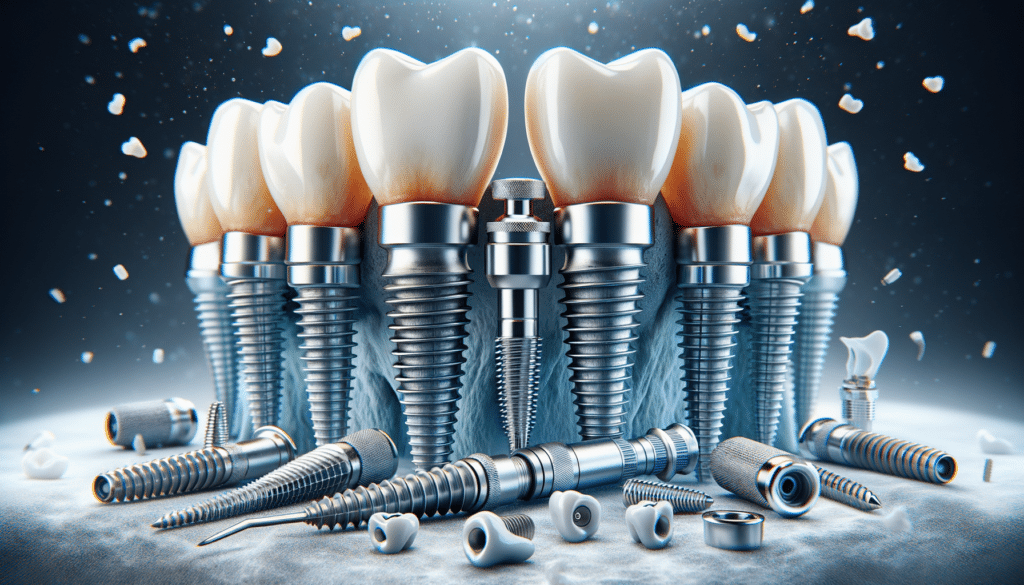Understanding Dental Implants: A Modern Solution
Dental implants have revolutionized the way we approach tooth replacement. Unlike traditional dentures or bridges, dental implants provide a permanent and stable solution that mimics the natural tooth structure. This process involves surgically placing a titanium post into the jawbone, which acts as a root for the artificial tooth. Over time, the bone fuses with the titanium, creating a strong foundation for the replacement tooth. This integration not only ensures durability but also helps maintain the jawbone’s integrity, preventing the bone loss associated with missing teeth.
The importance of dental implants extends beyond aesthetics. They restore functionality, allowing individuals to chew and speak without discomfort or embarrassment. Moreover, dental implants are renowned for their longevity. With proper care, they can last a lifetime, making them a cost-effective solution in the long run. The success rate of dental implants is remarkably high, often exceeding 95%, which is a testament to their reliability and effectiveness.
The Procedure: What to Expect
Understanding the dental implant procedure can alleviate any anxiety and prepare patients for what lies ahead. The process begins with a comprehensive evaluation, including X-rays and sometimes 3D imaging, to assess the jawbone’s condition and plan the implant placement. Once deemed suitable, the surgical procedure commences. Under local anesthesia, the dentist or oral surgeon makes an incision in the gum to expose the bone and drills a hole to insert the titanium post.
Following the placement, a healing period is essential for osseointegration, where the bone grows around the implant. This phase can take several months, during which a temporary crown may be placed for aesthetic purposes. Once fully integrated, an abutment is attached to the implant, serving as a connector for the final crown. The crown is custom-made to match the color and shape of the surrounding teeth, ensuring a seamless and natural appearance.
Advantages of Dental Implants
Dental implants offer numerous advantages over other tooth replacement options. Here are some key benefits:
- Improved Appearance: Implants look and feel like natural teeth, enhancing one’s smile and facial structure.
- Enhanced Comfort: Unlike removable dentures, implants become a permanent part of your mouth, eliminating discomfort.
- Durability: With proper care, dental implants can last a lifetime, making them a worthwhile investment.
- Bone Preservation: Implants stimulate the jawbone, preventing the bone loss that typically occurs with missing teeth.
- Improved Oral Health: Unlike bridges, implants do not require altering adjacent teeth, preserving natural tooth structure.
The benefits of dental implants extend beyond physical health. They also contribute to improved self-esteem and confidence, allowing individuals to enjoy life without the worries associated with missing teeth.
Considerations and Potential Challenges
While dental implants offer many benefits, there are considerations and potential challenges to be aware of. One of the primary factors is the cost, which can be higher than other tooth replacement options. However, the long-term benefits and durability often justify the initial expense. Additionally, not everyone is a candidate for dental implants. Adequate bone density is crucial for successful implantation, and conditions such as osteoporosis may affect eligibility.
There are also risks associated with the surgical procedure, such as infection, nerve damage, or sinus problems. However, these complications are rare and can often be managed with proper care and a skilled dental professional. It’s essential to discuss any concerns with your dentist and weigh the pros and cons before proceeding with the treatment.
Maintaining Dental Implants: Tips for Longevity
Maintaining dental implants is vital to ensure their longevity and functionality. Good oral hygiene practices, such as regular brushing and flossing, are crucial. It’s also important to schedule regular dental check-ups to monitor the condition of the implants and surrounding gums. Here are some tips to keep your dental implants in excellent condition:
- Brush Twice Daily: Use a soft-bristled toothbrush to clean around the implants and remove plaque.
- Floss Regularly: Special implant floss or interdental brushes can help clean hard-to-reach areas.
- Avoid Hard Foods: Chewing on hard items like ice or hard candies can damage the implants or crowns.
- Quit Smoking: Smoking can interfere with the healing process and increase the risk of implant failure.
- Regular Dental Visits: Professional cleanings and examinations are essential to maintain oral health.
By following these guidelines, you can ensure that your dental implants remain in optimal condition, providing you with a beautiful and functional smile for years to come.




